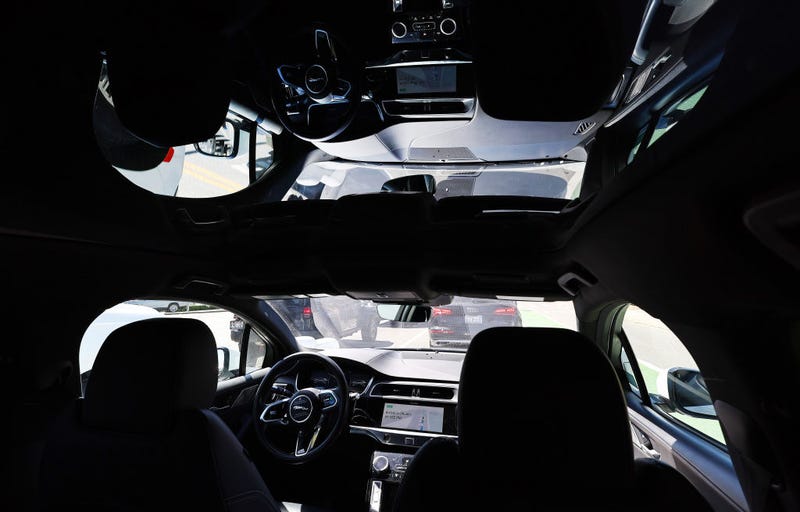
NEW YORK (1010 WINS/WCBS 880) — Mayor Eric Adams announced on Thursday that he and the Department of Transportation have released safety requirements for autonomous vehicle (AV) testing in New York City alongside applications for a permit program.
City Hall described the permit program application as “rigorous” and noted the importance of ensuring that approved applicants are ready to test their technology in a challenging urban environment like NYC.
“Our streets are vibrant and energetic—and that’s a great thing, but it also means that we need to have strong guardrails and requirements in place on any sort of autonomous vehicles,” Adams said. “That’s why we’re implementing these rigorous permit requirements and requiring close collaboration with DOT and our emergency responders, so we can ensure that autonomous vehicle technology works for New York City.”
In order to receive a permit, applicants are required to submit information on their previous testing experience (including previous testing and crash histories) and technological capabilities, a detailed testing plan for NYC and a safety plan. Applicants may apply to test anywhere in NYC.
Officials said that companies also must follow industry best practices—as determined by the Society of Automotive Engineers—when recruiting and training safety drivers, who, in accordance with state law, must be behind the wheel and ready to take control of the AV-enabled vehicle at all times during testing.
Applicants must obtain approval from the New York State Department of Motor Vehicles before beginning on-street tests, and will be required to coordinate with the DOT through regular meetings and data reporting before and during testing.
AV applicants much also engage with the NYPD and FDNY on how their vehicles interact with emergency vehicles.
“Driver error and distraction plays an all-too-common role in traffic crashes, and autonomous vehicle technology offers potential to improve traffic safety,” DOT Commissioner Ydanis Rodriguez said. “We look forward to working closely with AV companies that are serious about safely operating on America’s most challenging street network.”
Transportation Alternatives, a nonprofit advocating for safe and equitable streets through public policy change that makes NYC less car-centric, argues that self-driving cars are too dangerous for the city.
Executive director Danny Harris said that New Yorkers shouldn’t be “lab rats for the car industry,” and noted that driverless cars with safety drivers “have killed people just as driverless cars without safety drivers.”
“We live in the most pedestrian-dense, transit-rich city in the U.S., and the most congested,” Harris said. “We need to be delivering better transportation options to New Yorkers—not more cars, which bring pollution, unsafe streets, congestion, and chaos to our city.”
City Hall argues that the technology is inevitable, and the best way to regulate safety is through municipal collaboration and safety regulations.
“This technology is coming whether we like it or not, so we’re going to make sure that we get it right. If we do, our streets can be safer, and our air could be cleaner,” Adams said.
Waymo, a leading AV ride hailing company that launched robotaxi services in Los Angeles earlier this month, agrees.
“We commend this important step, as well as the city’s ongoing commitment to drive innovation and deliver transportation improvements for New Yorkers,” global head of public policy Michelle Peacock said. “Waymo looks forward to continuing our partnership … as we continue to safely bring our technologies to more cities and communities across the country.”
